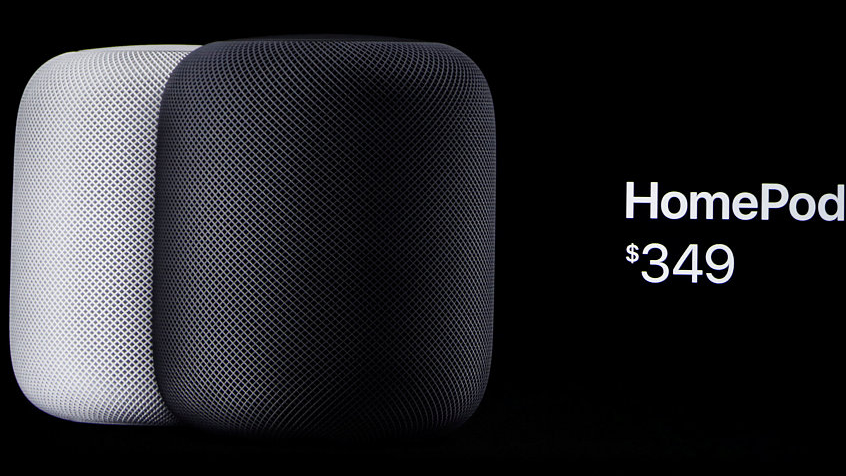
(Photo: CGTN)
With all the spotlight cast on Apple's growing sales, new AirPods Pro, as well as the services that have contributed to the increased revenue, the company's notorious bug-afflicted software iOS 13 is rolling out again with a new update version — iOS 13.2, containing even more serious problems.
According to reports at MacRumors and elsewhere, this update is bricking HomePods. After updating to iOS 13, some HomePods stopped functioning, with the top flashing white or red light, and users cannot fix it by resetting, a common solution when Apple's gadgets get stuck.
Apple hasn't admitted to the problem officially, but released a new version iOS 13.2.1 to fix the problem. There are even reports saying that if you contact Apple Support about the problem, they will replace it, even if it is past the warranty period.
Before the HomePod issue, many iPhone and iPad users worldwide grumbled about the iOS 13 and iPadOS 13 killing apps in the background far too aggressively in what appears to be a memory management issue.
"I was watching a video in YouTube on my iPhone 11 Pro. I pause the video to respond to a text message. I was in iMessage for less than one minute. When I returned to YouTube it reloaded the app and I lost the video I was watching. I noticed this a lot on my iPad Pro too. Apps and Safari tabs reloading a lot more frequently than they did in iOS 12. Very annoying," user Rogifan posted on MacRumor's online community.
Complaints on twitters are also mounting, with users mentioning @AppleSupport to solve their problems. "@AppleSupport I am glad to learn that the iOS13 battery drain is not a hardware defect but an iOS thing. I updated (iPhone 6s) today to the latest 13.2 and the problem is as bad as before. #fixbatterydrain." Forbes's tech editor has also cited some users' reactions in his story about the software bugs. "Updated to iOS 13.2 after 13.1 in hope that the battery drain issue would be fixed. Now it is worse! Really not a great experience."
In addition, the company made an urgent announcement early in October, saying if users failed to update their software in time, the internet services on the early generation devices will not work, including using the App Store, iCloud, email and web browsing.
Screenshot from Apple's website
Although for Apple, the most urgent need is to revive its declining iPhone sales and reverse revenue slump, the most important thing valued by users is the product itself.
Apple has tried to diversify its business operation and income sources through shifting its focus from hardware products to subscription business. These services brought in over 10.9 billion U.S. dollars in the first quarter, setting records in "every geographic segment" in the process, according to Apple CEO Tim Cook. He also added that the company is on track to double its services business from 2016 to 2020.
Sales of the iPhone 11 series helping to regain ground in China is another problem facing Apple, especially amid the trade war that has forced its biggest competitor Huawei to switch their focus to China's domestic market. According to the latest China smartphone market report issued by Canalys, Huawei's domestic market share has reached 42.4 percent, with sales surging 66 percent year-on-year. While many other mainstream brands are in decline. The decrease from Apple and Xiaomi reached about 30 percent.


